Course Overview
Course summary
The Art and Visual Culture MA is part of the Cultural and Literary Studies Suite, a cluster of four MAs that bring together academics, curators and practitioners who share a commitment to investigating modern and contemporary culture from aesthetic, critical, literary, and experiential perspectives.
You'll share classes with students from the Cultural and Critical Studies MA, the English Literature: Modern and Contemporary Fictions MA, and the Museum, Galleries and Contemporary Culture MA, joining a fruitful and intellectually rigorous environment designed to facilitate the sprouting of interdisciplinary thinking. As part of our Suite, you may also choose an option module from the other three MA programmes (what is referred to as an ‘elective’ module), a fantastic opportunity to explore a facet of culture outside of your chosen MA programme.
The Art and Visual Culture MA is an interdisciplinary, visual theory-based course established around the belief that visual literacy and the impact of visual forms of thinking and working play significant roles in our society. On the course, we interrogate visual perception and representation in high and popular culture, explore how these produce meanings, and how such meanings shape societies and individuals.
The course introduces you to a wide range of historical and contemporary debates that inform the theories and practices of visual culture, and supports you in developing a conceptual framework within which to evaluate the role of the visual arts, and other forms of visual production, in contemporary society and culture. The course gives you a solid grounding for careers in the art and cultural sectors as well as academia, and it is also suitable for practising artists wishing to further their research.
This MA balances historical and theoretical debates in the field of visual culture studies with a rigorous interrogation of cultural practices across a range of topics, including: contemporary visual arts; the visual and material culture of the city; modernism in art and architecture; popular and avant-garde cultures; fin de siècle visual culture; digital culture and new media technologies; migration, identity and gender as represented in cultural practices; activism and popular politics; theory and practice of archive research; and critical theories of modern and contemporary culture.
Many of our modules include class visits to leading museums, galleries and archives in London: this provides a fantastic opportunity to engage directly with the city’s cultural institutions and intellectual resources, in doing so providing you with sophisticated critical thinking skills as well as practical knowledge of how the cultural sector operates.
Westminster is a leading provider in this academic discipline and is ranked first in the UK in the Complete University Guide 2022 for Research Quality in Art and Design.
Top reasons to study with us
- London museums and galleries on our doorstep – based at our Regent Street Campus in the heart of central London, we're able to incorporate the fantastic nearby museums and galleries into our teaching and learning
- Work experience in the cultural sector – you have the option to gain practical experience through our Work Placement in Cultural Institutions module, benefitting from our proximity to London's cultural sector. Recent work placements have included institutions from the Victoria and Albert Museum to the British Film Institute
- Institute of Modern and Contemporary Culture – as a postgraduate student, you'll become a member of our interdisciplinary Institute of Modern and Contemporary Culture, and enjoy the opportunity to engage with a rich and diverse programme of events
Course structure
The Art and Visual Culture MA is delivered in both full-time and part-time modes, with both September and January start dates. This means that when you start your course you'll be joining a lively community of students, some, like yourself, embarking on the MA and some continuing their studies with us.
The course is modular, with each single module valued at 20 credits, and the dissertation at 60 credits. For the MA, you'll be required to accumulate the total of 180 credits over the course of your degree. Normally, full-time students take one core module and two options per semester and work on the dissertation in the summer. Part-time students would typically take one core module and one option module per semester in the first year and complete further two option modules and the dissertation in their second year of their MA.
The following modules are indicative of what you will study on this course.
We aim to offer a wide range of option modules. However, availability may be affected by timetabling, staff availability, or student demand, so preferred choices cannot always be guaranteed.
Core modules
Critical introduction to history and theory of visual culture. Philosophical and theoretical perspectives are used to explore vision as a social and cultural process, investigating the ways in which the meanings of the 'seen' are explored, constructed and contested in construction, display and discourse.
20 credits
Exploration and critical examination of the key theoretical debates that have contributed to the field of art and visual culture studies. Topics include the politics of representation, the gaze, the reproduction of images, regimes of surveillance, and the discourse of the 'other'.
20 credits
Development, execution, and writing-up of an independent research project on a topic chosen by the student. All students will attend regular research seminars. Individual supervision will provide topic-specific guidance.
60 credits
Option modules
Beginning with Marx’s famous account of the commodity in the first chapter of Capital, this module explores a range of theoretical accounts of capitalism and examines their significance to the analysis of different cultural forms, including film, literature, and the contemporary visual arts. In doing so, you will consider changing conceptions of ‘culture’ itself, and its varying relations to ideas of art, modernity, production, the mass, autonomy, spectacle, and the culture industry.
Specifically, this module aims to investigate the relationship between capitalism and the culture of modernity; to assess and investigate a number of different theoretical accounts of capitalism; to relate these different accounts to a range of cultural forms under capitalism, including art, literature, architecture, film, and television; to consider changing conceptions of ‘culture’ itself, and its varying relations to ideas of art, production, the mass, autonomy, spectacle, and the culture industry; and to explore the idea of a specific visual culture of capitalism, and its relationship to the commodity form.
20 credits
This module addresses one of the most urgent and, at the same time, elusive contemporary issues: the relationship between culture and the rise of digital media. It explores the production, circulation and cultural impact of digital technologies and considers how their emergence influences society, contemporary culture, and the relationship between the two. The module introduces key themes and debates in digital culture and explores ways I which digital environments impact how we produce, engage with, and thus understand, their cultural formations.
Specifically, this module aims to interrogate the impact of digital technologies in relation to contemporary culture through discussions of representative digital phenomena and critical and theoretical debates in digital culture; to apply theory in practice by participating in digital culture; to develop advanced capacity to critically analyse digital cultures; to develop an interdisciplinary framework for analysing the complex interactions of digital technologies and diverse forms of cultural production today; and to examine the implications of the ubiquitous digital technologies for cultural institutions.
20 credits
This module examines the practical and theoretical issues of using archives for the purposes of academic and professional research. With privileged access to the unique collections of the University of Westminster Archive, the module combines knowledge from the professional practice of archiving and from key archival theorists.
20 credits
This module focuses on issues of tangible and intangible cultural heritage in the UK and globally, expanding knowledge beyond museums and galleries. It looks at the processes of heritage making, the politics and uses of heritage across the world, and the concepts, theories, and the practices of heritage creation. The focus of the module is on heritage’s link to the cultural and creative industries, including tourism and instances of untold or overlooked narratives in the sector. It considers, for example, the role of UNESCO; living heritage including sounds and smells; sports; festivals and carnivals; parks; walking tours; dark heritage, and mega events (such as the Cultural Olympiad and the European Capital of Culture) in order to develop your critical and creative thinking skills as well as professional capabilities. It encourages engagement with case examples and sources whilst reflecting on personal experiences of heritage and cultural interests.
20 credits
This module is a critical exploration of the structure of the culture and heritage sector, the different kinds of institutions represented within it (e.g., large galleries, heritage sites, small local authority museums), and their relationships with political bodies, funders, and the leisure and tourism industry. You will gain an in-depth understanding of the management and governance structures of cultural and heritage institutions, the professional roles within the sector, and how different institutions manage resources, fundraise and manage projects. The module also considers significant management-specific challenges such as how to oversee and build diverse workforces and the emotional labour involved. You'll further gain the active listening, teamwork, and digital and communication skills necessary for professional work in the sector.
20 credits
This module looks in detail at the Museum of London. On each session a guest curator will present their individual approach to curating. You will discuss the many ways that museum exhibitions are constructed, how texts and displays are designed and why learning and education is a central part of the museum’s narrative. This module will explore different subject areas, such as archaeology, contemporary history or fashion and reveal the challenges to curators in interpreting and displaying material for exhibition.
Specifically, this module aims to examine contemporary museum and gallery displays and exhibitions in London, with case studies of the Museum of London; to interrogate the concept of narrative, and how it is used to ‘construct’ social and cultural history; and to examine how objects and images are used within curatorial display practices.
20 credits
This module explores the issues and practices involved in the representation of world cultures. It focuses in particular on the visual representations of non-western cultures within a western context, and examines the ways in which these representations produce meanings about the ‘Other’.
20 credits
Using a range of theoretical, historical, literary, visual and other cultural texts, this module explores the idea of urban culture as it has developed since the mid nineteenth century. Focusing, in particular, on the distinctive concept of the modern metropolis, the module considers a variety of different representations of the city and critically examines the divergent ways in which they understand the specificity of urban experience itself.
Specifically, this module aims to examine the formation and representation of modern urban culture through the analysis of specific theoretical, literary, visual and other cultural texts; to investigate developing conceptions of a distinctive metropolitan experience from the mid nineteenth century onwards; to introduce and assess different theoretical and critical accounts of urban culture; to consider the relationship between urban cultures and capitalism as a social form; to explore the relationships between the particular histories and cultures of specific cities and general conceptions of the urban as a social-spatial form; to consider the changing global forms and interrelations of ‘western’ and ‘non-western’ urban forms; and to examine the implications of interdisciplinary study in relation to the city.
20 credits
This module aims to enable you to gain first-hand experience of working within a context relevant to their career objectives; to enhance the opportunities for translating theoretical and practical knowledge into professional skills and to encourage you to make beneficial connections within a professional context. We have established contacts with a range of galleries and organisations for work placements and support you in finding an appropriate host institution.
Recent work placements on the module have included the Museum of London, the British Museum, the Victoria & Albert Museum, Camden Arts Centre, Arts Catalyst, Film London, Jessica Carlise Gallery, the British Film Institute, the Chinese Film Festival and the Wellcome Trust. We also work with the University careers office to help you develop skills for entering the job market.
20 credits
This module examines how leading art museums and galleries define their roles and priorities within the contemporary art world. The module examines how different approaches to collecting and exhibiting art reflects an institution’s priorities and ideologies. It explores how art museum and gallery exhibitions are researched and planned, how collections are displayed and how activities are marketed. The module addresses the art museums and galleries in the context of contemporary culture and considers the role other arts organisations working outside the gallery structure such as public art and site specific art organisations, agencies and interdisciplinary organisations that work across sectors.
20 credits
For more details on course structure, modules, teaching and assessment Download the programme specification (PDF).
To request an accessible version please email [email protected]
Get your copy of the University of Westminster prospectus and browse the range of courses on offer.
Contact us for general course enquiries:
+44 (0)20 7911 5000 EXT 65511
(Mon–Fri, 10am–4pm GMT)
Live chat with us
(Mon–Fri, 10am–4pm GMT)
Open evenings
Join us at an open evening online or on campus. Get a feel for student life at the University of Westminster and talk to course leaders and our support teams.
Can't attend? See more open events
Careers
The Art and Visual Culture MA prepares you for careers in the art and cultural sector as well as academia. The combination of seminars, workshops and field trips that the course offers equips you with sophisticated critical thinking skills as well as practical knowledge of how the cultural sector operates.
Prepare for a career in the cultural sector
Our course offers you a unique combination of professional practice, creative development, skills enhancement, and contextual, specialist and interdisciplinary knowledge.
Experience cultural London
Our central London location allows us to incorporate London's museums and galleries into our teaching and learning, and you'll be ideally placed to immerse yourself in London's art scene.
Employers
Access a network of over 3,000 employers at the University’s new home of careers and enterprise, Zone29.
Work experience
If you choose to take our Work Placement in Cultural Institutions module, you can gain practical experience working in your area of interest, enhancing your professional skills and making connections within your chosen industry.
Recent work placements have taken place at institutions including:
- Arts Catalyst
- British Film Institute
- British Museum
- Camden Arts Centre
- Chinese Film Festival
- Film London
- Museum of London
- Victoria & Albert Museum
- Wellcome Trust
Job roles
This course will prepare you for a variety of roles, including:
- Cultural consultant
- Curator
- Editor
- Events and communications manager
- Journalist
- Media arts project manager
- MPhil/PhD study in fields such as art history and visual culture, cultural studies, and media
- Public relations specialist
Accelerate your career at Zone29
Zone29 is our new home of careers and enterprise.
Our doors are set to open in spring 2026, but game-changing opportunities are available now, such as:
- jobs and placements
- tailored career advice and industry mentoring
- careers events led by industry experts
- help with developing your own business or freelance career
- enhancing your career planning through the Westminster Award

Our graduates
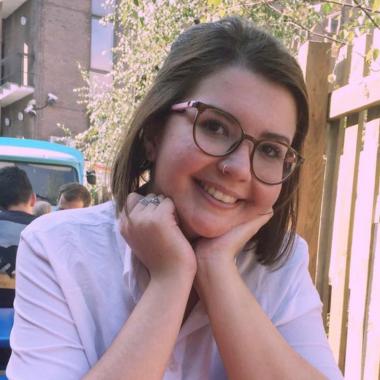
Nour Al-Nashi
Art and Visual Culture MA
Undertaking this MA during the turbulent year of 2020 was a rollercoaster of emotions. But with the unmatched support of the staff at the University, the high standards of classes with the switch to online learning were maintained. This MA offers a wide selection of modules which cover a spectacular array of subjects from film studies to queer studies and everything in between. I loved having many options, even within one module, to choose from to enhance my skills and knowledge in the way I feel is fit. The course allows you to take the paths which are best for you, and the brilliant professors will fill you with enthusiasm for each week of classes.

Alberto Pellegrin
Art and Visual Culture MA
Doing an MA this year was a particularly challenging experience, but also a rewarding and stimulating one. During the year I explored a wide range of topics of interest to me, customising my modules and assignments and focusing on particular aspects of visual culture. The course leader, lecturers and readers were competent, helpful and supportive, and encouraged me to challenge myself and find my own path. During my experience I received great academic teaching and a considerable intellectual and cultural experience, as well as personal encouragement and support that went beyond classroom participation.

Alexandrina Chirila
Art and Visual Culture MA
My experience on this course has been a decidedly positive one, despite the challenging circumstances of the move to online learning. The course has given me a strong theoretical basis of crucial debates in the contemporary art field, providing me with all the needed resources (and more) that helped me shape my own perspective and figure out the career path I would like to follow. The learning environment has always been one of encouragement, support, and collaboration, both the teaching staff and fellow students have been extremely open to listening. It almost feels like, even if we have been apart for most of the course, this year has still brought us together, uniting us at a distance.
Course Leader
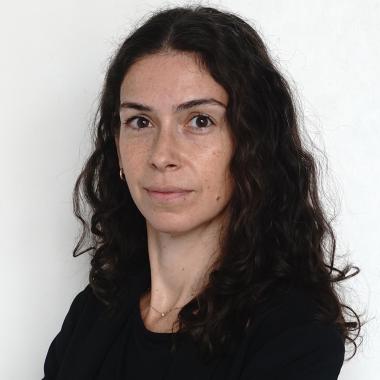
Dr Sara Dominici
Reader
Sara is a historian of photography and visual culture with extensive experience of working and teaching with archive and museum collections. Her teaching draws on her interdisciplinary research, as well as on her previous experience working as a photographer and editor in both commercial and non-profit organisations.
It is a privilege to work with the diverse cohort of international students that our University attracts. The wealth of perspectives that they bring to the discussions is something that I really treasure and that contributes to the richness of our programmes.
Course Team
- Professor John Beck - Professor
- Dr Matthew Charles - Senior Lecturer in Cultural and Critical Theory
- Dr Georgina Colby - Reader in Modern and Contemporary Literature
- Alison Craighead - Reader
- Professor David Cunningham - Professor
- Dr Federica Mazzara - Reader in Cultural Studies
- Professor Alexandra Warwick - Professor
- Dr Elinor Taylor - Senior Lecturer
- Dr Ailsa Peate - Senior Lecturer
- Dr Alison Hess - Lecturer
Why study this course?
Institute of Modern and Contemporary Culture
Through our Institute, you'll have the opportunity to enjoy events including research seminars, symposia, guest lectures, conferences and screenings.
High-quality teaching
Our teaching is informed by research at the cutting edge of modern and contemporary arts and culture. You'll be taught by expert staff, including practicing artists, from a number of different disciplines, giving you flexibility to follow the themes that most interest you.
Active and engaging learning environment
Many of our classes are seminars and a number of modules also include hands-on workshops engaging with primary materials, including archival sources, exhibitions, and cultural artefacts.
Entry Requirements
A minimum of a lower second class honours degree (2:2) in a relevant discipline, including arts and humanities, fine arts and performing arts, as well as some social science subjects. Relevant work experience might also be taken into consideration, especially in the case of applicants who don’t meet the standard entry criteria. Applicants may be asked to respond to a specific article.
Please note that international students requiring a student visa to enter the UK will need to have academic qualifications that meet UK visa requirements.
If your first language is not English you should have an IELTS 6.5 overall with 6.0 in each component.
Applicants are required to submit one academic reference.
Applicants may be asked to respond to a specific article.
Recognition of prior learning and experience
If you have previously studied at university level, or have equivalent work experience, academic credit may be awarded towards your course at Westminster. For more information, visit our Recognition of Prior Learning page.
Application process
Visit our How to apply page for more information on:
- the application process
- what you need to apply
- deadlines for application
A minimum of a lower second class honours degree (2:2) in a relevant discipline, including arts and humanities, fine arts and performing arts, as well as some social science subjects. Relevant work experience might also be taken into consideration, especially in the case of applicants who don’t meet the standard entry criteria. Applicants may be asked to respond to a specific article.
Please note that international students requiring a student visa to enter the UK will need to have academic qualifications that meet UK visa requirements.
If your first language is not English you should have an IELTS 6.5 overall with 6.0 in each component.
Applicants are required to submit one academic reference.
Applicants may be asked to respond to a specific article.
Application process
Visit our How to apply page for more information on:
- the application process
- what to include with your application
- deadlines for application and enrolment
More information
- Country-specific entry requirements
- English language requirements
- Visas and advice
- Fees and scholarship information
University preparation courses
Our partner college, Kaplan International College London, offers Pre-Master’s courses that may help you gain a place on a postgraduate degree at Westminster.
To find out more, visit University preparation courses.
A minimum of a lower second class honours degree (2:2) in a relevant discipline, including arts and humanities, fine arts and performing arts, as well as some social science subjects. Relevant work experience might also be taken into consideration, especially in the case of applicants who don’t meet the standard entry criteria. Applicants may be asked to respond to a specific article.
Please note that international students requiring a student visa to enter the UK will need to have academic qualifications that meet UK visa requirements.
If your first language is not English you should have an IELTS 6.5 overall with 6.0 in each component.
Applicants are required to submit one academic reference.
Applicants may be asked to respond to a specific article.
Recognition of prior learning and experience
If you have previously studied at university level, or have equivalent work experience, academic credit may be awarded towards your course at Westminster. For more information, visit our Recognition of Prior Learning page.
Application process
Visit our How to apply page for more information on:
- the application process
- what you need to apply
- deadlines for application
A minimum of a lower second class honours degree (2:2) in a relevant discipline, including arts and humanities, fine arts and performing arts, as well as some social science subjects. Relevant work experience might also be taken into consideration, especially in the case of applicants who don’t meet the standard entry criteria. Applicants may be asked to respond to a specific article.
Please note that international students requiring a student visa to enter the UK will need to have academic qualifications that meet UK visa requirements.
If your first language is not English you should have an IELTS 6.5 overall with 6.0 in each component.
Applicants are required to submit one academic reference.
Applicants may be asked to respond to a specific article.
Application process
Visit our How to apply page for more information on:
- the application process
- what to include with your application
- deadlines for application and enrolment
More information
- Country-specific entry requirements
- English language requirements
- Visas and advice
- Fees and scholarship information
University preparation courses
Our partner college, Kaplan International College London, offers Pre-Master’s courses that may help you gain a place on a postgraduate degree at Westminster.
To find out more, visit University preparation courses.
What our students say

Clare Laudy
Art and Visual Culture MA - 2021
My time studying Art and Visual Culture at Westminster has been fantastic. I have made friends from across the globe, immersed myself in the University's incredible teaching and pursued my passion for visual culture. The modules covered are hugely stimulating with seminars sparking lively theoretical debate. Additionally, there is flexibility to explore your own research. My skills and knowledge gained from the MA have helped me to secure internships and my current position in publishing. I highly recommend the course and want to say a huge thank you to the course leader, lecturers and the University, for a wonderful two years.
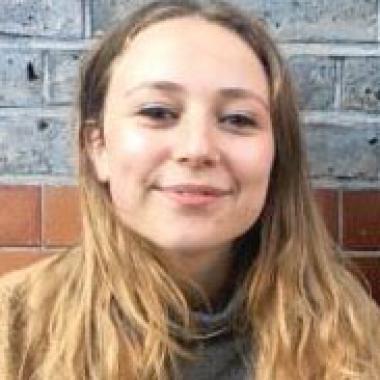
Sofia Pancucci-McQueen
Art and Visual Culture MA
Studying on the Art and Visual Culture MA at Westminster was a thoroughly rewarding experience. The course modules were structured extremely well, enabling me to establish strong understandings of key theoretical concepts and texts in order to engage in pertinent debates about contemporary culture.
I would highly recommend the MA to anyone who has an innate curiosity about the world we live in. You will not only be taught by knowledgeable, energetic tutors, but will have many thought-provoking conversations with a culturally diverse mix of fellow students. I can genuinely say I didn't want the course to end.
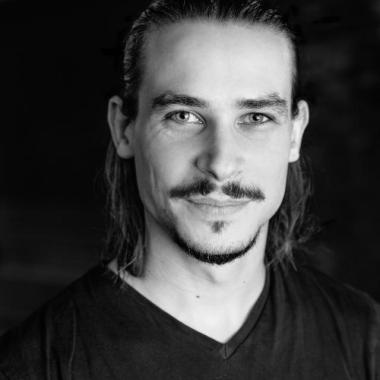
Robert Fellman
Art and Visual Culture MA
Doing an MA part-time while holding down a full-time job was a daunting prospect, but the staff at Westminster were so supportive throughout. They helped me to rekindle my enjoyment of learning, and pushed me to produce work that I am now really proud of.
The University is so uniquely placed in central London, and the topics being taught are relevant and exciting. I felt like I was part of a forward-thinking institution, and I hope to carry that momentum forward in my post-MA life. Thank you, Westminster.
What our students say
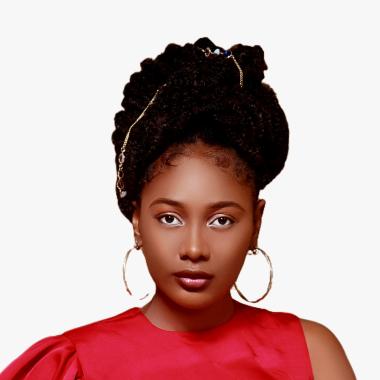
Mimidoo Kwembe
Art and Visual Culture MA - 2024
If you're thinking about studying at the University of Westminster, I can confidently assure you that it is truly outstanding. The University offers well-structured study plans and engaging lectures that help you gain a deep understanding of your chosen course.
Learn new skills
Volunteer and gain new skills
Learn new skills, create connections and make a difference in the community through our volunteering opportunities.
Gain entrepreneurial expertise
Access industry networking events, workshops, one-to-one business advice and start-up support through our award-winning WeNetwork.
Get extra qualifications
Free access to online courses in Adobe and Microsoft Office, and specialist training on LinkedIn Learning.
Fees and Funding
UK tuition fee: £9,900 (Price per academic year)
When you have enrolled with us, your annual tuition fees will remain the same throughout your studies with us. We do not increase your tuition fees each year.
Find out how we set our tuition fees.
Paying your fees
If you don't wish to pay the whole amount of your fees at once, you may be able to pay by instalments. This opportunity is available if you have a personal tuition fee liability of £2,000 or more and if you are self-funded or funded by the Student Loans Company.
Find out more about paying your fees.
Alumni discount
This course is eligible for an alumni discount. Find out if you are eligible and how to apply by visiting our Alumni discounts page.
Funding
There is a range of funding available that may help you fund your studies, including Student Finance England (SFE).
Find out more about postgraduate student funding options.
Scholarships
The University is dedicated to supporting ambitious and outstanding students and we offer a variety of scholarships to eligible postgraduate students.
Find out if you qualify for one of our scholarships.
Additional costs
See what you may need to pay for separately and what your tuition fees cover.
International tuition fee: £18,000 (Price per academic year)
When you have enrolled with us, your annual tuition fees will remain the same throughout your studies with us. We do not increase your tuition fees each year.
Find out how we set our tuition fees.
Paying your fees
If you don't wish to pay the whole amount of your fees at once, you may be able to pay by instalments. This opportunity is available if you have a personal tuition fee liability of £2,000 or more and if you are self-funded or funded by the Student Loans Company.
Find out more about paying your fees.
Alumni discount
This course is eligible for an alumni discount. Find out if you are eligible and how to apply by visiting our Alumni discounts page.
Funding
There are a number of funding schemes available to help you fund your studies with us.
Find out more about funding for international students.
Scholarships
The University is dedicated to supporting ambitious and outstanding students and we offer a variety of scholarships to eligible postgraduate students.
Find out if you qualify for one of our scholarships.
Additional costs
See what you may need to pay for separately and what your tuition fees cover.
UK tuition fee: £9,900 (Price per academic year)
When you have enrolled with us, your annual tuition fees will remain the same throughout your studies with us. We do not increase your tuition fees each year.
Find out how we set our tuition fees.
Paying your fees
If you don't wish to pay the whole amount of your fees at once, you may be able to pay by instalments. This opportunity is available if you have a personal tuition fee liability of £2,000 or more and if you are self-funded or funded by the Student Loans Company.
Find out more about paying your fees.
Alumni discount
This course is eligible for an alumni discount. Find out if you are eligible and how to apply by visiting our Alumni discounts page.
Funding
There is a range of funding available that may help you fund your studies, including Student Finance England (SFE).
Find out more about postgraduate student funding options.
Scholarships
The University is dedicated to supporting ambitious and outstanding students and we offer a variety of scholarships to eligible postgraduate students.
Find out if you qualify for one of our scholarships.
Additional costs
See what you may need to pay for separately and what your tuition fees cover.
International tuition fee: £18,000 (Price per academic year)
When you have enrolled with us, your annual tuition fees will remain the same throughout your studies with us. We do not increase your tuition fees each year.
Find out how we set our tuition fees.
Paying your fees
If you don't wish to pay the whole amount of your fees at once, you may be able to pay by instalments. This opportunity is available if you have a personal tuition fee liability of £2,000 or more and if you are self-funded or funded by the Student Loans Company.
Find out more about paying your fees.
Alumni discount
This course is eligible for an alumni discount. Find out if you are eligible and how to apply by visiting our Alumni discounts page.
Funding
There are a number of funding schemes available to help you fund your studies with us.
Find out more about funding for international students.
Scholarships
The University is dedicated to supporting ambitious and outstanding students and we offer a variety of scholarships to eligible postgraduate students.
Find out if you qualify for one of our scholarships.
Additional costs
See what you may need to pay for separately and what your tuition fees cover.
Teaching and Assessment
Below you will find how learning time and assessment types are distributed on this course. The graphs below give an indication of what you can expect through approximate percentages, taken either from the experience of previous cohorts, or based on the standard module diet where historic course data is unavailable. Changes to the division of learning time and assessment may be made in response to feedback and in accordance with our terms and conditions.
How you’ll be taught
Teaching methods across all our postgraduate courses focus on active student learning through lectures, seminars, workshops, problem-based and blended learning, and where appropriate practical application. Learning typically falls into two broad categories:
- Scheduled hours: examples include lectures, seminars, practical classes, workshops, supervised time in a studio
- Independent study: non-scheduled time in which students are expected to study independently. This may include preparation for scheduled sessions, dissertation/final project research, follow-up work, wider reading or practice, completion of assessment tasks, or revision
How you’ll be assessed
Our postgraduate courses include a variety of assessments, which typically fall into two broad categories:
- Practical: examples include presentations, podcasts, blogs
- Coursework: examples include essays, in-class tests, portfolios, dissertation
Data from the academic year 2024/25
Research groups
Our research achieves real-world impact and we are proud to claim a rich and diverse profile of high-quality research and knowledge exchange in a wide range of disciplines.
Find out more about our research groups related to this course:
Supporting you
Our Student Hub is where you’ll find out about the services and support we offer, helping you get the best out of your time with us.
- Study support – workshops, 1-2-1 support and online resources to help improve your academic and research skills
- Personal tutors – support you in fulfilling your academic and personal potential
- Student advice team – provide specialist advice on a range of issues including funding, benefits and visas
- Extra-curricular activities – volunteering opportunities, sports and fitness activities, student events and more
Course location
Our Regent Campus is comprised of two sites, situated on and around Regent Street – one of the most famous and vibrant streets in London.
Our Humanities subjects are based at 309 Regent Street, which includes recently refurbished social spaces, gym facilities and our Regent Street Cinema.
This course is based at Regent Street, though some teaching may take place at our other central London campuses.
For more details, visit our locations page.
CHANGES TO OUR COURSES
All content on our course pages is accurate at time of publication.
Where significant or material changes have been made, applicants will be informed of these in line with Competition and Markets Authority guidance.
Contact us
Call our dedicated team on:
+44 (0)20 7911 5000 ext 65511
Opening hours (GMT): 10am–4pm Monday to Friday
Opening hours (GMT): 10am–4pm Monday to Friday
More information
Your Westminster
Book an open day. Order a prospectus. Sign up for newsletters.




